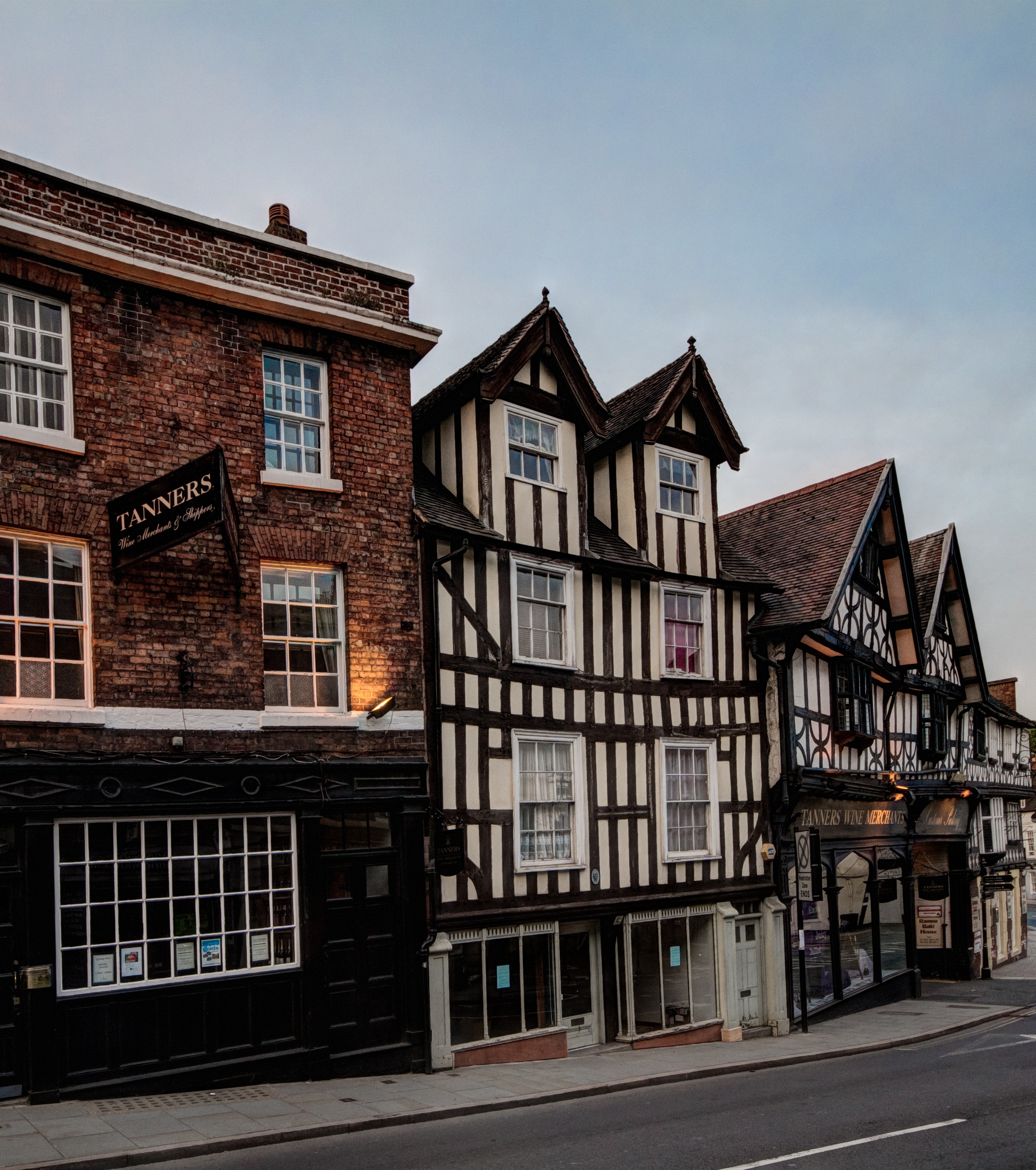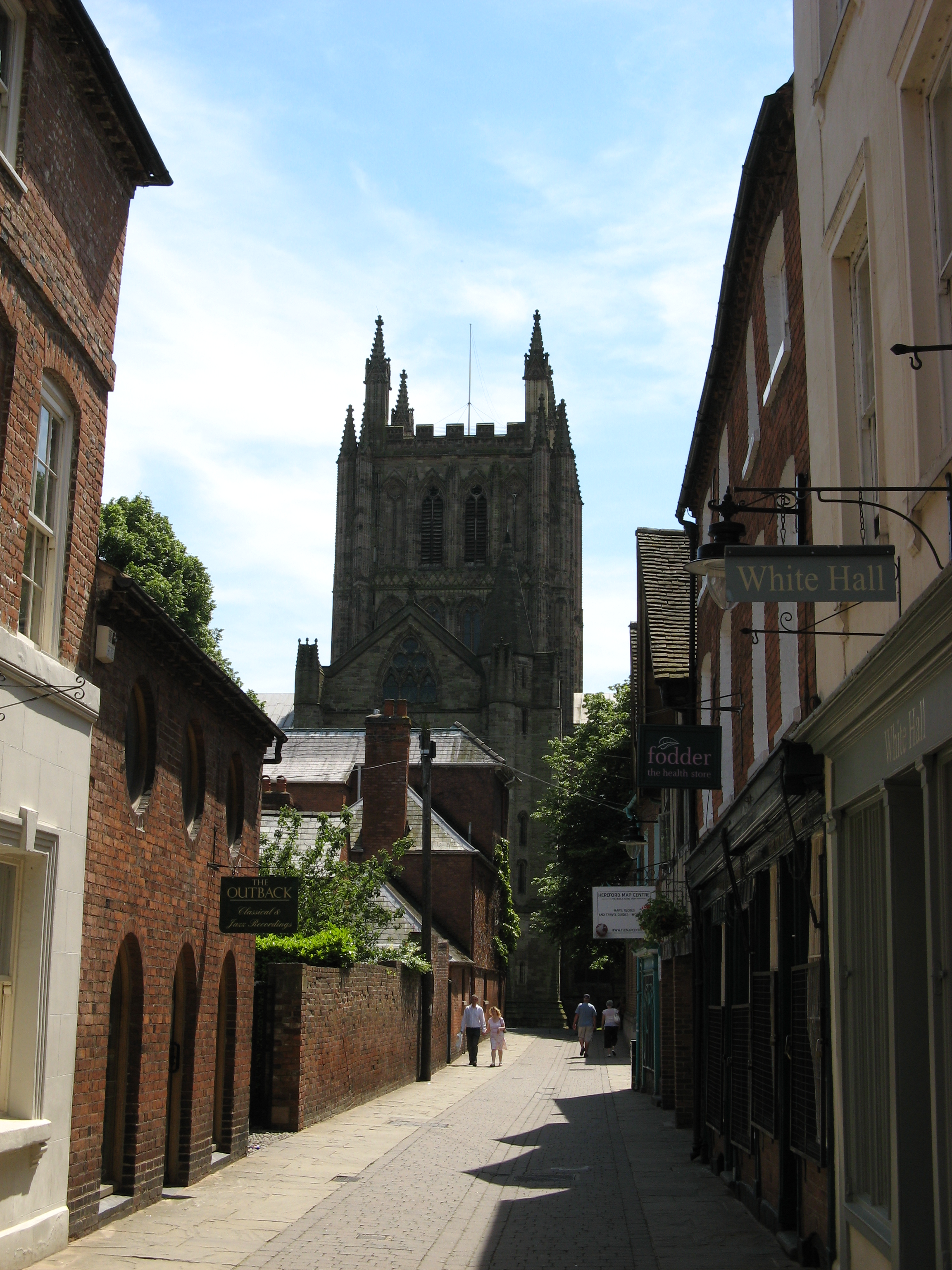|
Rowton Castle
Rowton Castle, near Shrewsbury, Shropshire, England, is a Grade II* listed country house that was once the home of the Royal National College for the Blind before it moved to its present location in Hereford. This 17th-century castle is surrounded by 17 acres of gardens, and is approximately from Shrewsbury. It is currently used as a wedding venue, hotel and restaurant. The present castle was built in the 17th century, although a previous castle had stood on the site for several hundred years. The house was in the possession of the Lyster family until the death of Lady Charlotte Lyster, in 1889. She passed the house to her nephew, Montagu Corry, 1st Baron Rowton, who in turn passed it on to his nephew, Colonel N. A. Lowry Curry following his death in 1903. The house's next owner, Major Lees, sold it to the Royal Normal College for the Blind in 1941. The college, which had previously been located in London, was forced to find new premises after its site, based in Upper Norwood, w ... [...More Info...] [...Related Items...] OR: [Wikipedia] [Google] [Baidu] |
Shrewsbury
Shrewsbury ( , also ) is a market town, civil parish, and the county town of Shropshire, England, on the River Severn, north-west of London; at the 2021 census, it had a population of 76,782. The town's name can be pronounced as either 'Shrowsbury' or 'Shroosbury', the correct pronunciation being a matter of longstanding debate. The town centre has a largely unspoilt medieval street plan and over 660 listed buildings, including several examples of timber framing from the 15th and 16th centuries. Shrewsbury Castle, a red sandstone fortification, and Shrewsbury Abbey, a former Benedictine monastery, were founded in 1074 and 1083 respectively by the Norman Earl of Shrewsbury, Roger de Montgomery. The town is the birthplace of Charles Darwin and is where he spent 27 years of his life. east of the Welsh border, Shrewsbury serves as the commercial centre for Shropshire and mid-Wales, with a retail output of over £299 million per year and light industry and distribution centre ... [...More Info...] [...Related Items...] OR: [Wikipedia] [Google] [Baidu] |
Shropshire
Shropshire (; alternatively Salop; abbreviated in print only as Shrops; demonym Salopian ) is a landlocked historic county in the West Midlands region of England. It is bordered by Wales to the west and the English counties of Cheshire to the north, Staffordshire to the east, Worcestershire to the southeast, and Herefordshire to the south. A unitary authority of the same name was created in 2009, taking over from the previous county council and five district councils, now governed by Shropshire Council. The borough of Telford and Wrekin has been a separate unitary authority since 1998, but remains part of the ceremonial county. The county's population and economy is centred on five towns: the county town of Shrewsbury, which is culturally and historically important and close to the centre of the county; Telford, which was founded as a new town in the east which was constructed around a number of older towns, most notably Wellington, Dawley and Madeley, which is today th ... [...More Info...] [...Related Items...] OR: [Wikipedia] [Google] [Baidu] |
Listed Building
In the United Kingdom, a listed building or listed structure is one that has been placed on one of the four statutory lists maintained by Historic England in England, Historic Environment Scotland in Scotland, in Wales, and the Northern Ireland Environment Agency in Northern Ireland. The term has also been used in the Republic of Ireland, where buildings are protected under the Planning and Development Act 2000. The statutory term in Ireland is " protected structure". A listed building may not be demolished, extended, or altered without special permission from the local planning authority, which typically consults the relevant central government agency, particularly for significant alterations to the more notable listed buildings. In England and Wales, a national amenity society must be notified of any work to a listed building which involves any element of demolition. Exemption from secular listed building control is provided for some buildings in current use for worship, ... [...More Info...] [...Related Items...] OR: [Wikipedia] [Google] [Baidu] |
English Country House
An English country house is a large house or mansion in the English countryside. Such houses were often owned by individuals who also owned a town house. This allowed them to spend time in the country and in the city—hence, for these people, the term distinguished between town and country. However, the term also encompasses houses that were, and often still are, the full-time residence for the landed gentry who ruled rural Britain until the Reform Act 1832. Frequently, the formal business of the counties was transacted in these country houses, having functional antecedents in manor houses. With large numbers of indoor and outdoor staff, country houses were important as places of employment for many rural communities. In turn, until the agricultural depressions of the 1870s, the estates, of which country houses were the hub, provided their owners with incomes. However, the late 19th and early 20th centuries were the swansong of the traditional English country house lifest ... [...More Info...] [...Related Items...] OR: [Wikipedia] [Google] [Baidu] |
Royal National College For The Blind
The Royal National College for the Blind (RNC) is a co-educational specialist residential college of further education based in the English city of Hereford. Students who attend the college are aged 16 to 25 and blind or partially sighted. They can study a wide range of qualifications at RNC, from academic subjects such as English and Mathematics to more vocational topics such as Massage and Complementary Therapies. Alongside regular further education subjects and vocational training, the college offers training in mobility, assistive technology, Braille, independent living skills and personal development. Founded in 1872 in London as the Royal Normal College and Academy for the Blind, the college had a number of homes before moving to its campus in Hereford; it was renamed The Royal National College for the Blind in the late 1970s. It has been a pioneer in the education of visually impaired people in Britain since the Victorian era, and, as of 2010, is the only college for ... [...More Info...] [...Related Items...] OR: [Wikipedia] [Google] [Baidu] |
Hereford
Hereford () is a cathedral city, civil parish and the county town of Herefordshire, England. It lies on the River Wye, approximately east of the border with Wales, south-west of Worcester and north-west of Gloucester. With a population of 53,112 in 2021 it is by far the largest settlement in Herefordshire. An early town charter from 1189, granted by Richard I of England, describes it as "Hereford in Wales". Hereford has been recognised as a city since time immemorial, with the status being reconfirmed as recently as October 2000. It is now known chiefly as a trading centre for a wider agricultural and rural area. Products from Hereford include cider, beer, leather goods, nickel alloys, poultry, chemicals and sausage rolls, as well as the famous Hereford breed of cattle. Toponymy The Herefordshire edition of Cambridge County Geographies states "a Welsh derivation of Hereford is more probable than a Saxon one" but the name "Hereford" is also said to come from the Angl ... [...More Info...] [...Related Items...] OR: [Wikipedia] [Google] [Baidu] |
Montagu Corry, 1st Baron Rowton
Montagu William Lowry-Corry, 1st Baron Rowton, (8 October 1838 – 9 November 1903), also known as "Monty", was a British philanthropist and public servant, best known for serving as Benjamin Disraeli's private secretary from 1866 until the latter's death in 1881. Background and education Born in Grosvenor Square, London, Lowry-Corry was the second son of the Honourable Henry Lowry-Corry by his wife Lady Harriet, daughter of the 6th Earl of Shaftesbury. The social reformer, the 7th Earl of Shaftesbury, was his maternal uncle. He was educated at Harrow and at Trinity College, Cambridge, and was called to the Bar in 1863. He practised for three years on the Oxford Circuit. Career Lowry-Corry's father, a younger son of Somerset Lowry-Corry, 2nd Earl Belmore, represented County Tyrone in parliament continuously for forty-seven years (1826–1873), and was a member of Lord Derby's third ministry (1866–1868) as Vice-President of the Council and afterwards as First Lord of th ... [...More Info...] [...Related Items...] OR: [Wikipedia] [Google] [Baidu] |
Royal Normal College For The Blind
The Royal National College for the Blind (RNC) is a co-educational specialist residential college of further education based in the English city of Hereford. Students who attend the college are aged 16 to 25 and blind or partially sighted. They can study a wide range of qualifications at RNC, from academic subjects such as English and Mathematics to more vocational topics such as Massage and Complementary Therapies. Alongside regular further education subjects and vocational training, the college offers training in mobility, assistive technology, Braille, independent living skills and personal development. Founded in 1872 in London as the Royal Normal College and Academy for the Blind, the college had a number of homes before moving to its campus in Hereford; it was renamed The Royal National College for the Blind in the late 1970s. It has been a pioneer in the education of visually impaired people in Britain since the Victorian era, and, as of 2010, is the only college for v ... [...More Info...] [...Related Items...] OR: [Wikipedia] [Google] [Baidu] |


.jpg)
.jpg)
